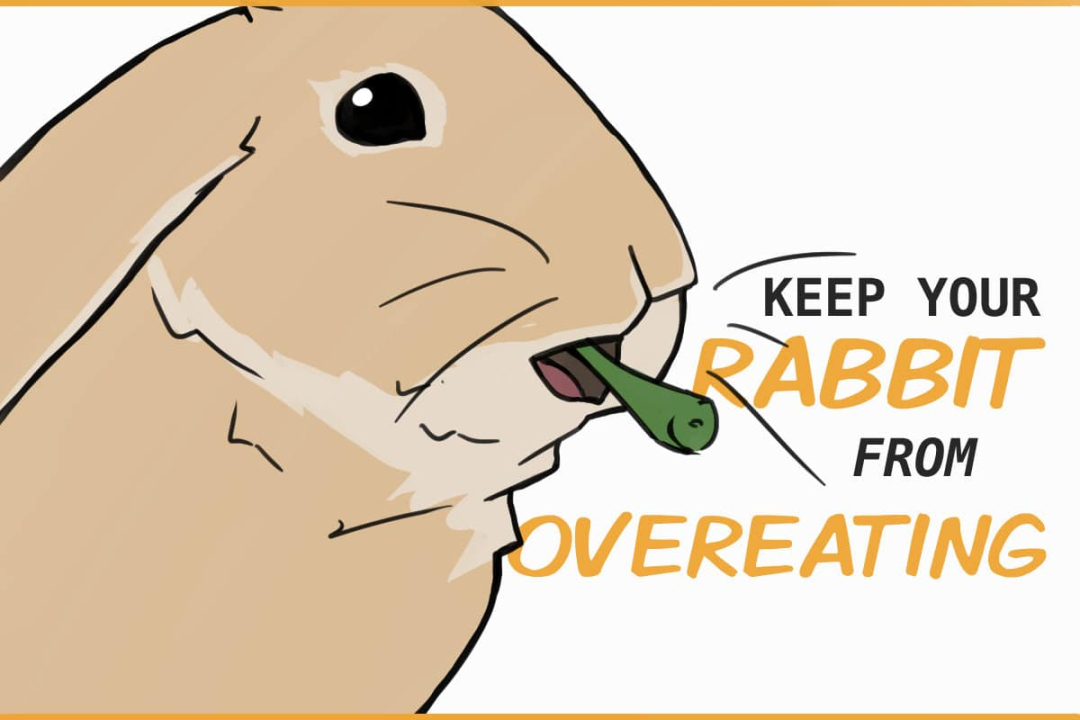Can You Overfeed a Rabbit?
Rabbits are adorable and delightful pets that require a balanced diet to thrive. Proper nutrition is vital for a rabbit’s overall health and well-being. However, it is important to understand that overfeeding a rabbit can lead to various health issues. In this article, we will explore the potential risks of overfeeding rabbits and provide tips on maintaining a healthy diet for your furry friend.

The Risks of Overfeeding
Overfeeding a rabbit can have detrimental effects on its health. Here are some risks associated with overfeeding:
- Obesity: Rabbits that consume an excessive amount of food are prone to obesity. Obesity can lead to a variety of health problems, such as heart disease, diabetes, and arthritis.
- Gastrointestinal Issues: Overfeeding can disrupt a rabbit’s delicate digestive system, leading to gastrointestinal problems like diarrhea, bloating, and gas. These issues can cause discomfort and potentially be life-threatening.
- Dental Problems: Rabbits have continuously growing teeth, and consuming too much food can affect their dental health. Overfeeding may result in overgrown teeth, malocclusion, and painful dental issues.
- Reduced Life Expectancy: Overfeeding can significantly shorten a rabbit’s lifespan. Obesity-related health problems can decrease a rabbit’s quality of life and lead to premature death.
How to Maintain a Healthy Diet for Your Rabbit
Providing a balanced diet is crucial for your rabbit’s well-being. To ensure your rabbit receives the right nutrition without overfeeding, consider the following tips:
- Hay: Fresh hay is an essential part of a rabbit’s diet. It provides the necessary fiber and aids in healthy digestion. Offer unlimited amounts of grass hay, such as timothy hay or meadow hay, to your rabbit daily.
- Vegetables: Introduce a variety of leafy greens and vegetables into your rabbit’s diet. Start with small amounts and gradually increase the serving size. Some suitable options include kale, spinach, parsley, and carrot tops.
- Pellets: High-quality rabbit pellets should make up a small portion of your rabbit’s diet. Ensure the pellets are specifically formulated for rabbits and do not contain any added sugars or artificial additives. Follow the recommended serving size provided by your veterinarian.
- Treats: Treats should be given sparingly and in small quantities. Avoid sugary or high-fat treats and opt for healthier options like small pieces of fruit or herbs.
- Water: Fresh, clean water should always be available for your rabbit. Ensure the water is changed daily to prevent contamination.
FAQs
1. Can rabbits eat unlimited amounts of hay?
Yes, rabbits can eat unlimited amounts of hay. Hay is crucial for their digestive system and helps wear down their continuously growing teeth.
2. How often should I feed my rabbit vegetables?
It is recommended to introduce vegetables gradually into your rabbit’s diet. Start with small amounts, and once your rabbit adjusts, you can increase the serving size to one to two cups per day.
3. Are all rabbit pellets the same?
No, not all rabbit pellets are the same. It is important to choose high-quality pellets specifically formulated for rabbits, without any added sugars or artificial additives.
4. Can I give my rabbit treats?
Yes, you can give your rabbit treats, but they should be given sparingly and in small quantities. Make sure to choose healthy treats like small pieces of fruit or herbs.
By following a balanced diet and ensuring you do not overfeed your rabbit, you can help them live a long and healthy life. Remember to consult with your veterinarian for specific dietary recommendations based on your rabbit’s age, breed, and overall health.
Related Articles…
Copyright Notice:
Images displayed on this website are not our property, but are procured from the internet. If you hold copyrights to any image and wish for its removal, please get in touch with us.